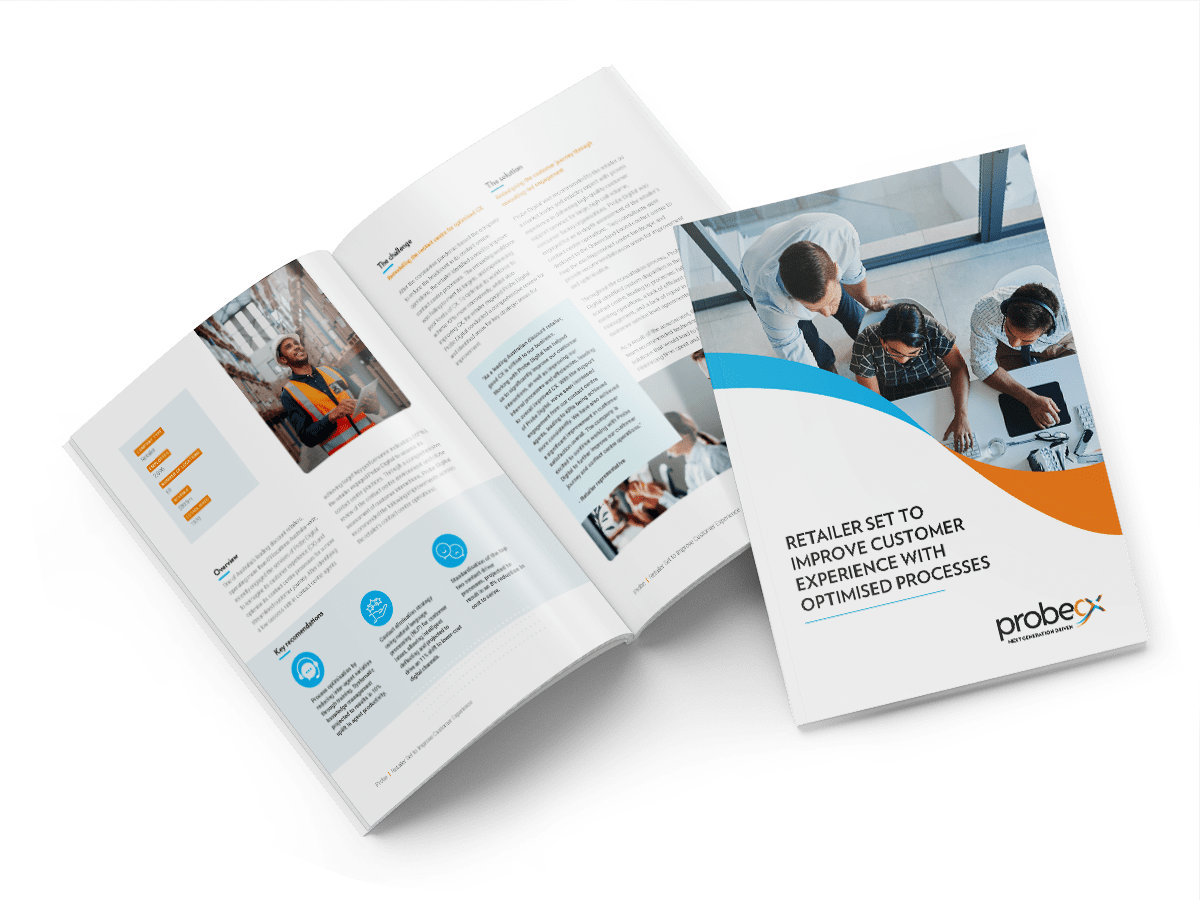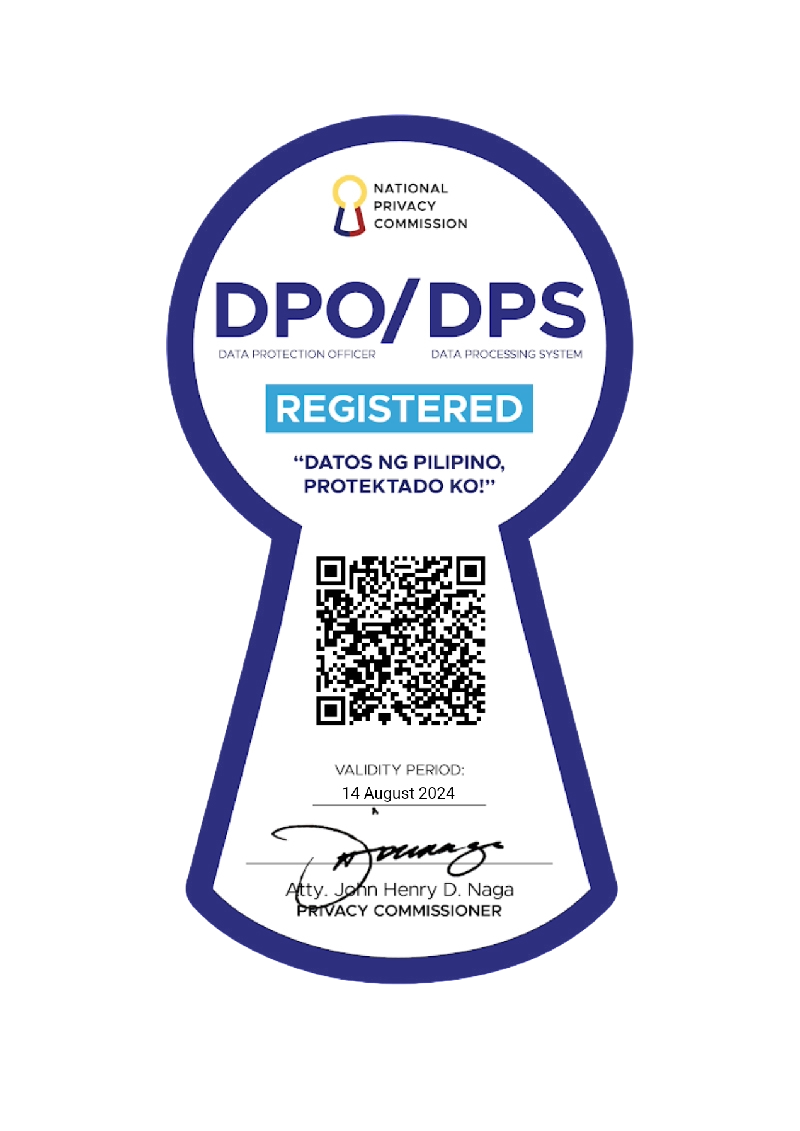-
About Us
Probe CX is a tech-powered, global customer experience organisation that amplifies human capabilities with technological excellence.
-
Vision and Culture
We help our clients become modern digital organisations by combining the latest technology with people, process and data.
-
Executive Team
Meet the team with unmatched experience committed to helping organisations create environments for digitally-enabled CX to thrive.
-
Compliance
Industry-recognised certifications to protect what matters most to our clients and their customers.
-
Locations
Over 19,000 team members delivering exceptional customer experiences across five countries.
-
Reasons to choose Probe CX
The top nine reasons to get more closely acquainted with Probe CX.
TECHNOLOGY & TRANSFORMATION SERVICES
 Creating exceptional customer experiences by 'doing it better'
Creating exceptional customer experiences by 'doing it better'
Optimise your customer experience by designing, deploying and managing digital solutions customised to your unique needs.
Continue reading- Blog
- What is an intelligent virtual agent?
What is an intelligent virtual agent?

You are sifting through a pile of job applications when one catches your eye. The first thing you notice is the applicant is willing to handle enquiries 24 hours a day, seven days a week without being paid penalty rates. Better still, they don’t want to be paid at all. Then there are their personal attributes – a photographic memory, a constantly improving vocabulary, a scientific approach to examining data that allows them to provide customers with personalised insights. They even claim they will require no training for the role. Simply turn up on day one and get to work.
Then comes the clincher – an ironclad guarantee to never engage in office politics, gossip with colleagues or waste time at the water cooler analysing last night’s episode of Married at First Sight.
Sound too good to be true? Well, you clearly haven’t been introduced to Intelligent Virtual Agents (IVA)?
More Than a Chatbot
People often mistake IVAs with chatbots but that would be akin to saying a Mini Minor and Formula 1 race car are one and the same. Sure, they may both be motor vehicles but one is on a whole other level. So it is with Intelligent Virtual Agents, which are more advanced than regular chatbots and have the ability to engage with customers in a manner that replicates humans.
Without getting too technical, IVAs are powered by cognitive process automation and nature language understanding, a subset of artificial intelligence that mimics the way the human brain works. While the ability of basic chatbots to imitate human dialogue is often limited by a set of pre-registered answers, IVAs can save and use memories of a conversation to initiate context-related, human-like dialogues.
An example – if a staff member phones the IT Helpdesk, enters a job number and asks a question about their computer, the IVA stores the information for later use. This means that if the discussion moves on, the virtual agent not only still knows who is talking but can access information from previous parts of the conversation to help create a positive customer experience.
Using technology such as Natural Language Processing, pattern recognition, image processing and, most importantly, contextual analysis, IVAs can make more intuitive leaps, perceptions and judgements for better speech recognition. Through machine learning and deep learning, they can also grow their vocabulary, understand colloquial formations and give precise answers to enquiries. That is a huge advantage over basic bots, while cynics may even suggest some human agents would benefit from such commitment to self-improvement.
The IVA Advantage
The benefits of adopting IVA technology are many, with cost savings at the top of the pile for most executives. The ability to deliver 24/7 support with almost no downtime is a dream for many organisations, let alone being able to do so without associated high labour costs. Deploying Intelligent Virtual Agents means customer issues can be resolved around the clock and with little input from human agents and customers themselves.
IVAs are also revolutionising the IT helpdesk. Take the issue of password resets. Despite being a seemingly easy problem to solve, the sheer volume of requests for resetting passwords – up to 40% of all IT helpdesk calls according to Gartner - has seen Forrester Research determine large organisations are collectively spending up to $1 million each year on staffing and infrastructure for that problem alone. Allowing users to engage with IVAs to reset a password or gain access to a locked account can be a quick win for IT service desks and deliver huge savings on repetitive tasks.
Given the business world’s increasing focus on customer experience, IVAs are proving to be an invaluable tool in not only meeting but exceeding callers’ expectations. Introducing Intelligent Virtual Agents enables the streamlining of processes, with callers no longer forced to wait in long queues to speak with a human agent or manage their time to phone during opening hours. Interconnected AI is also helping machines analyse data and provide tailored experiences to individual customers, track their previous behaviours and deliver a level of service that cannot be matched by a human agent.
Summary
Just as every business’s needs and pain points are different, every Intelligent Virtual Agent can be designed and programmed to provide unique services. It is simply a matter of working with your teams to access and understand the data that will help identify the areas of your business that will best benefit from deploying an IVA. The one thing that businesses can agree on is that Intelligent Virtual Agents are the perfect tool to help improve productivity, reduce costs and deliver a better customer experience.
To explore how Intelligent Virtual Agents can change your organisation for the better, download our digital brochure.
Related Articles
Customer Experience CX
What is closed-loop customer experience management?
It is one thing to receive feedback. It is another to use it to inspire positive change. Discover the power of closing the loop.
Shared Services
Probe CX navigated the COVID-19 work-from-home debate.
Following the Contact Centre Week interview, Probe CX's CEO Andrew Hume discusses the work-from-home mobilisation of its global organisation and what it means for the future of work.
Artificial Intelligence
What are PDD and SDD In RPA?
Do you know what PDDs and SDDs are in RPA? Here’s the difference between the two, as well as how they develop an automated process.
© Copyright 2024 Probe CX | All Rights Reserved
Privacy Policy | Financial Hardship Policy | Whistleblower Policy | Complaints Procedure | Supplier Code of Conduct | Make a Payment | Client Login





